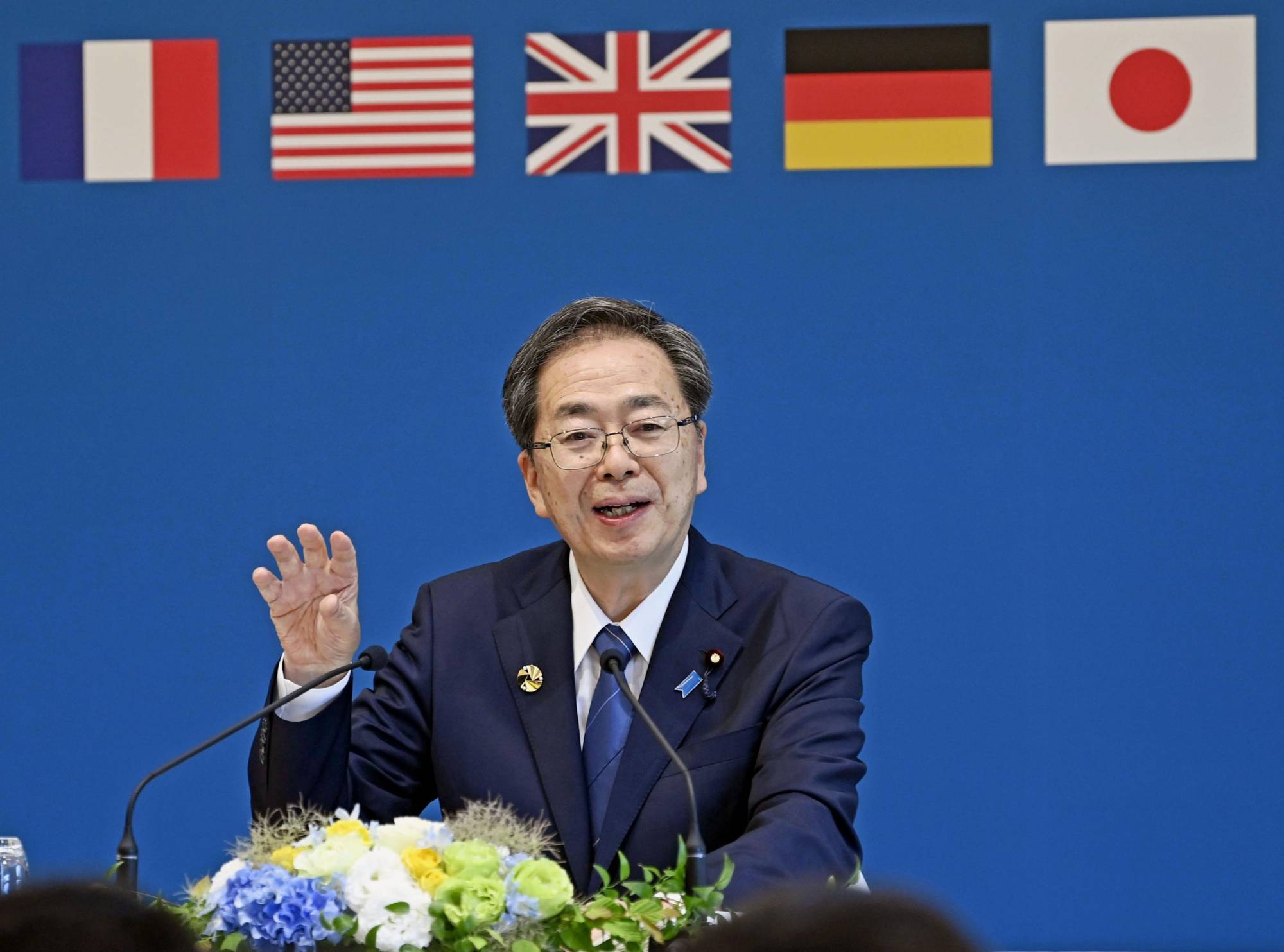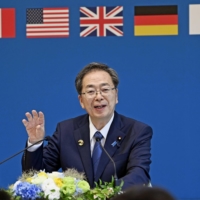Transport ministers from the Group of Seven countries said in a statement Sunday that they will promote the introduction of low-carbon fuel to help decarbonize the aviation industry.
Also in the statement, the G7 transport ministers condemned Russia's invasion of Ukraine and reiterated their support for rebuilding transportation infrastructure damaged during the war.
The statement was adopted at their meeting in the city of Shima, Mie Prefecture, which ended on Sunday.
At a news conference the same day, transport minister Tetsuo Saito, who chaired the G7 meeting, said that the G7 members aim to leverage the outcome of the meeting for the development of transportation in the future.
Regarding support for Ukraine, Saito said, "We will consider specific support measures while listening closely to the Ukrainian side about its needs."
To decarbonize the aviation industry, the use of sustainable aviation fuels, which are made from waste food oil and other materials, is seen as essential, but the emission-reducing effects of such fuels are said to vary depending on the materials and production methods used.
The G7 countries plan to promote the introduction of sustainable aviation fuels with higher emission-reducing effects than the standards already set by the International Civil Aviation Organization.
In the area of maritime transport, the G7 countries will support the opening of green corridors for ships that do not emit carbon dioxide, with the aim of opening at least 14 such sea routes around the world by the mid-2020s.
The ministerial statement noted that Ukraine's transportation infrastructure has been severely damaged by Russian aggression. To help Ukraine continue to export and import agricultural products and other goods, the G7 ministers agreed to work together to secure alternative transportation routes that bypass Russia.




